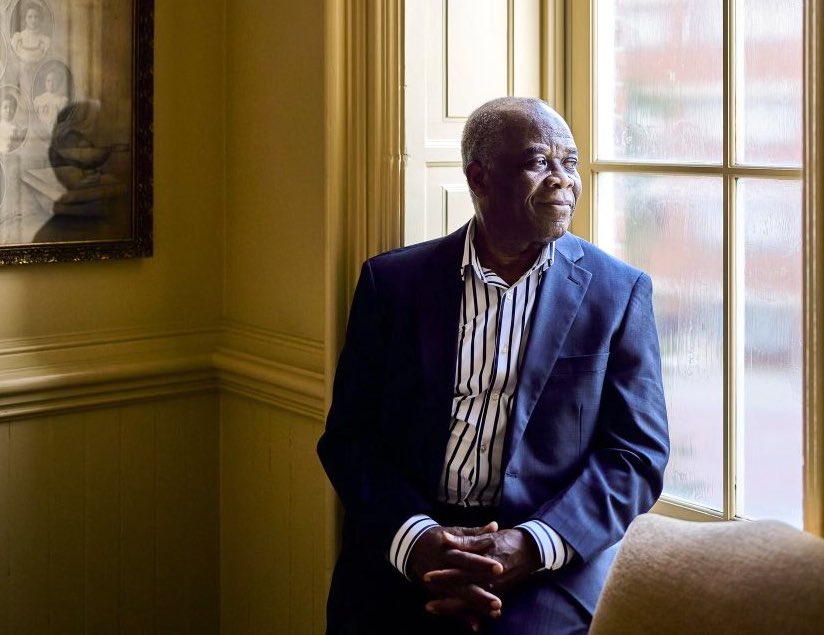
The longtime director of the award-winning Fisk Jubilee Singers died Saturday in Nashville at age 70.
Dr. Paul Kwami was the choir’s first African director, and his commitment to the ensemble’s 150-year legacy carried them through several remarkable milestones.
“His passing leaves a gaping hole in our souls as well as in our community and in our world, ” reads a statement from Kwami’s family. “A natural born mentor, he gave of himself freely to those he cared for and invested in the lives of many with a joyful heart.”
Growing up in Ghana, Kwami had no idea who the Fisk Jubilee Singers were. But he definitely knew their songs. In an interview with WPLN News, he recalled sitting at his father’s feet at age 4, hearing a visiting choir perform a spiritual.
“I can still see it mentally. A picture of that choir — of the room where we were for this concert,” he said.
Like his father, Kwami became a music teacher before coming to the United States in 1983 to study music education at Fisk University. He hadn’t planned on participating in any extracurriculars, but on the day of auditions for the Fisk Jubilee Singers, a friend suggested he sign up. Being accepted was a moment that changed his life.
Members follow in the footsteps of singers from over 150 years ago, when the ensemble’s tours brought spirituals to the world as part of a concert tour that funded the construction of Fisk’s oldest buildings.
More: 150 years of the Fisk Jubilee Singers
When Kwami returned to Fisk in 1994, he became the ensemble’s director, a position he held for the rest of his life. And while he carried the weight of that legacy, he also saw the music’s positive impact on the students right there in the present.
“Some students may come into a rehearsal with personal problems,” Kwami mused. “The emotions always flow through the songs that we sing.”
Under Kwami’s leadership, the ensemble’s awards include a Grammy, a Dove Award, and the National Medal of the Arts. The group was inducted into the Gospel Music Hall of Fame.
They performed at The Apollo, Carnegie Hall, the White House, and in Kwami’s homeland of Ghana, as part of the country’s celebration of its independence — its year of jubilee.

While in Ghana, they took the bold step of bringing spirituals to Elmina Castle — once a point of departure of the transatlantic slave trade — for a recording. Seeing the site was an emotionally difficult experience for everyone involved, but Kwami was confident in the healing power of bringing this particular music to the building.
“Our prayer that day was that the music would be embedded in the grounds and walls of that castle, so that anyone who would walk in there would experience the forgiveness and peace of God.”
In a statement, the university highlights Kwami’s “gentle voice” and “generous spirit.”
“Few people have ever, nor will ever, touch hearts and change lives like Dr. Kwami,” it reads. “His talent was unprecedented, his composure legendary, his insight immense and his dedication unwavering.”
Funeral arrangements for Kwami are pending.

